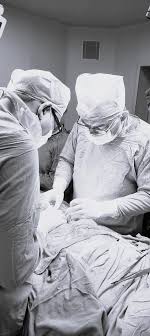Agartala, August 30 — A team of doctors at Agartala Government Medical College and GBP Hospital successfully operated on a 60-year-old diabetic woman from Kalyanpur, who was suffering from a severe kidney infection caused by multiple stones. The complex surgery, conducted free of cost under the Ayushman Bharat Pradhan Mantri Jan Arogya Yojana, saved the patient from a potentially life-threatening condition.
The patient initially sought medical attention in late July after experiencing extreme pain and fever. On July 23, doctors performed a nephrostomy, draining approximately 1.5 litres of pus from her left kidney to relieve infection and prevent further complications. This initial procedure stabilized her condition and prepared her for the major surgery that followed.
After careful evaluation and planning, the medical team carried out a complex left kidney removal (nephrectomy) on August 14. The operation, which lasted four hours, was led by urologists Dr. Mukut Debnath, Dr. Bijit Lodh, and Dr. Jiban Debnath, with critical support from the anaesthesia department and the operating theatre (OT) team. The surgery involved meticulous dissection to remove the infected kidney while safeguarding surrounding organs and tissues, given the patient’s underlying diabetic condition.
Following the procedure, the patient received intensive post-operative care, including monitoring of vital signs, infection control, and management of blood sugar levels to ensure optimal recovery. The multidisciplinary team worked closely to monitor her kidney function and overall health during her hospital stay.
After more than a week of recovery, the patient was discharged on August 25 in stable condition, reportedly showing good improvement and ready to resume her daily activities.
Doctors highlighted the significance of the surgery, noting that such procedures would typically cost around Rs 5 lakh in private hospitals, but were performed free of cost thanks to the Ayushman Bharat scheme, which aims to provide accessible and affordable healthcare to vulnerable populations.
The medical team emphasized the importance of early diagnosis and timely intervention for kidney infections, especially in diabetic patients, to prevent severe complications such as renal failure. They also credited the seamless coordination between departments for the successful outcome.
This case stands as a testament to the capabilities of government healthcare facilities in providing high-quality surgical care and life-saving interventions without imposing financial burdens on patients.












